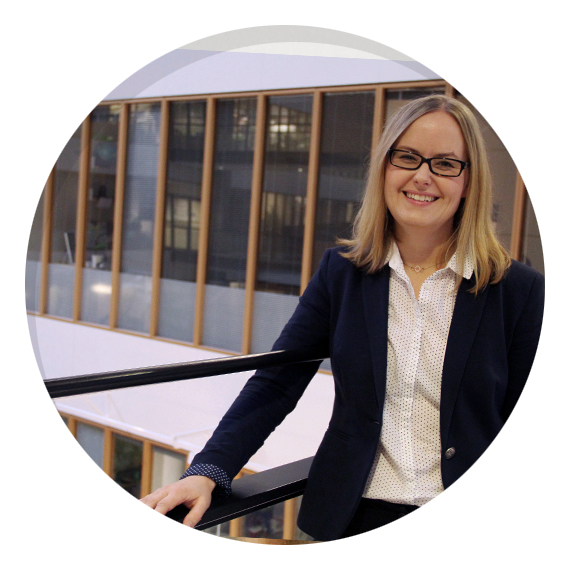Visage: Hannele Korhonen
 Photo: Emmi Lehikoinen
Photo: Emmi LehikoinenRight now, we are living interesting times with respect to climate change. Has the Paris Agreement had an effect on the focuses of climate research from the point of view of a researcher? "Not very visibly," Korhonen states. "The largest change for natural scientific research is the need for new 1.5 degree scenarios that the agreement sets. These kind of scenarios have not been made before," Korhonen notes. Generally, the change towards the research on mitigation and adaptation can be seen for example in the work of Intergovernmental Panel on Climate Change IPCC. "However, development is still needed in natural scientific research, as well. At the moment, especially improving regional projections to act as the basis of impact studies and decadal predictions that provide essential information to support political decision-making are important focuses."
As of yet, model projections that have been produced elsewhere have been used in the study of Finland's regional effects at the Finnish Meteorological Institute. "We are just about to utilize the HARMONIE-CLIM model with which we try to produce scenarios of higher resolution than before for Finland. The HARMONIE model is already in use in weather forecasts and now the climate version will be added alongside it. This also adds the synergy between weather forecasting and climate modelling," Korhonen says.
The stronger emphasis on societal viewpoints reflects on the research funding. The Finnish Meteorological Institute's emphasis on natural science sets its own challenges on applying for research funding. "We do research that is quite natural science-oriented and is not always directly applicable from a societal point of view. However, it is possible that the focus means new synergies within the climate research of the Finnish Meteorological Institute," Korhonen says. The need for societal research is strong, but the natural scientific basis is always needed for it.
Hannele Korhonen, who received her doctorate at the University of Helsinki in 2004, got truly caught up in the depths of climate modelling after spending a couple of years in the University of Leeds in England. Due to this visit, she remained on the path of global scale climate modelling which took her to Kuopio next. The years in Kuopio climaxed in supervisory duties at the Finnish Meteorological Institute which in their turn inspired the move to Helsinki. Around the same time, the chance for tenure track professorship emerged and Korhonen took it. The Tenure track path remained short, however, because a new project offered the chance for a promotion to a research professor. "The large ERC project in question takes five years and six other researchers work on it with me at the Finnish Meteorological Institute," Korhonen tells. The project, which studies the interaction of aerosols and clouds in climate models, is the one that keeps Korhonen most busy right now. On a wider level, her current line of work focuses on the general development of climate modelling both on global and regional scale. Alongside climate modelling, Korhonen is remembered as a researcher of climate engineering. However, the topic has gained less attention lately. "This is partially a conscious choice because I don't want to take too big of a role in the climate engineering discussion. My attitude towards the topic has always been critical," Korhonen explains.
What comes to her own career progression, Hannele Korhonen is always driven by the will to learn new things. "I never want to do the same things for too long. Luckily, something new to one's own work can emerge from different things – both from the chosen research subjects and for example supervisory duties." In addition to the research work itself, Korhonen is passionate about participating in the climate change discussion. "If I wasn't a researcher, I would probably be a science reporter," she says. "I add a lot of weight on making science understandable to the public and highlighting climate related issues in a world in which facts aren't always appreciated."